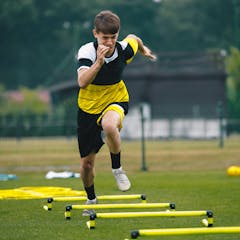
Articles on Health education
Displaying all articles

Education needs to address the big gaps in the knowledge around the menstrual cycles and the impact menstruation has on a wide range of health outcomes.

Mental health isn’t just about illness, it is also about wellness. Universities are well positioned to offer accessible, evidence-based wellness education to the general public.

Both at home and in schools, food can become a powerful tool to empower young people to take climate action, which can lead to reduced climate anxiety and increased feelings of hope for the future.

Conservative rhetoric about ‘parent rights’ that marginalizes LGBTQ+ positive sex education erases the complexity of parent identities and denies possibilities for richer school experiences.

Around two in every 100 people have sex characteristics between the male-female binary definitions. Training for doctors and other health workers needs to reflect this.

Health and physical education includes subjects such as sport science, health studies, athlete development, food and nutrition, outdoor and environmental studies, and sport and recreation.

Health education curriculums need to specifically prepare healthcare professionals to respond to a pandemic when it comes to aspects like infection control, aged care and mental health.

A nationwide online survey collected information from 4,202 teenagers and young women in Australia, about how their periods affected their education – either at school, university or VET.

The pandemic has revealed the complexity of new and ongoing health crises. Post-secondary institutions need to respond to this complexity with an interdisciplinary approach to teaching health issues.

Many health professionals leave Africa because they don’t know how to handle the non-clinical systemic problems.
Experts at the University of London have warned British education policy is encouraging schools to maximise the academic…

In the past, when infections were the dominant form of disease and death, and humans didn’t understand how they spread, an epidemic ended when enough people had died that there were no more potential victims…
